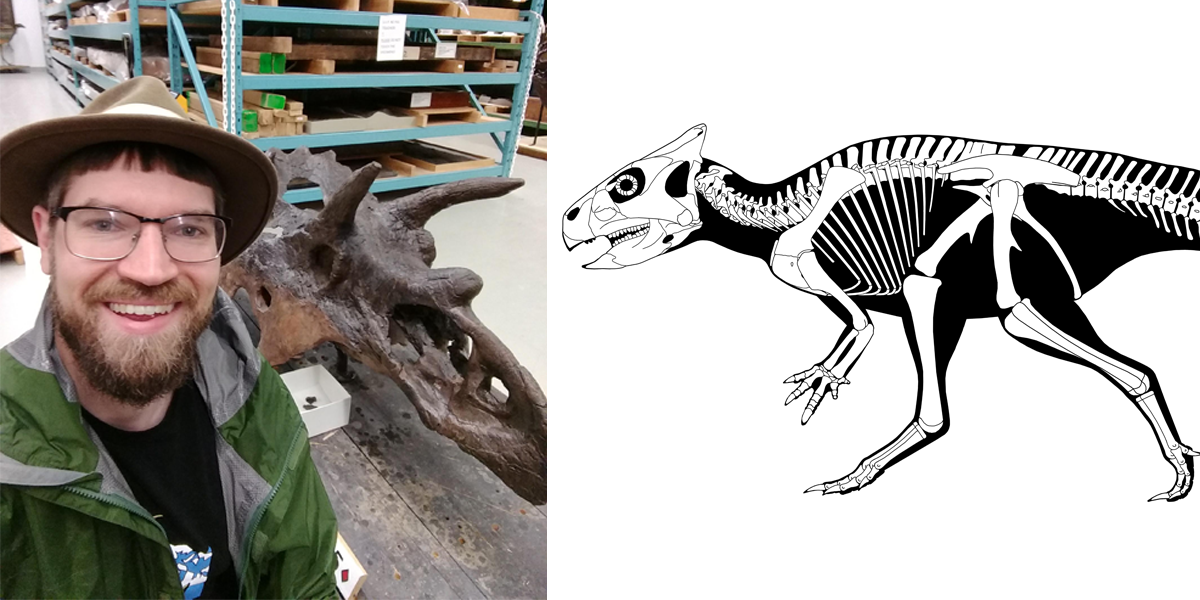
Moriarty Science Seminar: “Ceratopsian dinosaurs in the 21st Century: Lifestyles of the Horned and Hornless”
January 9, 2023, 12:00 pm - 1:00 pm
Hybrid: Online and At the Museum
Event Navigation

R.W. Moriarty Science Seminar Presents: “Ceratopsian Dinosaurs in the 21st Century: Lifestyles of the Horned and Hornless”
Speaker: Eric Morschhauser, Indiana University of Pennsylvania.
This event will take place Monday, January 9 at Noon both online and at Earth Theater.
Abstract: Ceratopsians, the horned dinosaurs, were first discovered in the late 19th Century and have been among the most popular and widely known dinosaurs ever since. For much of that time most known species shared a familiar and iconic body plan seen in things like Triceratops, large, rhinoceros-like quadrupedal herbivores with horns and elaborate head frills. But the number of known ceratopsian species has more than tripled in the last 25 years. Those new species are much more varied than previously suspected. Slightly less than half of all known ceratopsians species are smaller than deer, and most of those lack horns entirely. Once known from only the end of the Cretaceous in North America, ceratopsian dinosaurs now have a 100-million-year history on perhaps three continents.
Studies of ceratopsians, both horned and hornless, span important questions in 21st Century paleontology. They can help us understand the timing of interconnections and movements between continents as they radiated and spread across the Earth. They can help us look at the tempo and mode of evolution. They are even being used to examine the question of what it means to be a distinct species of dinosaur.
.
